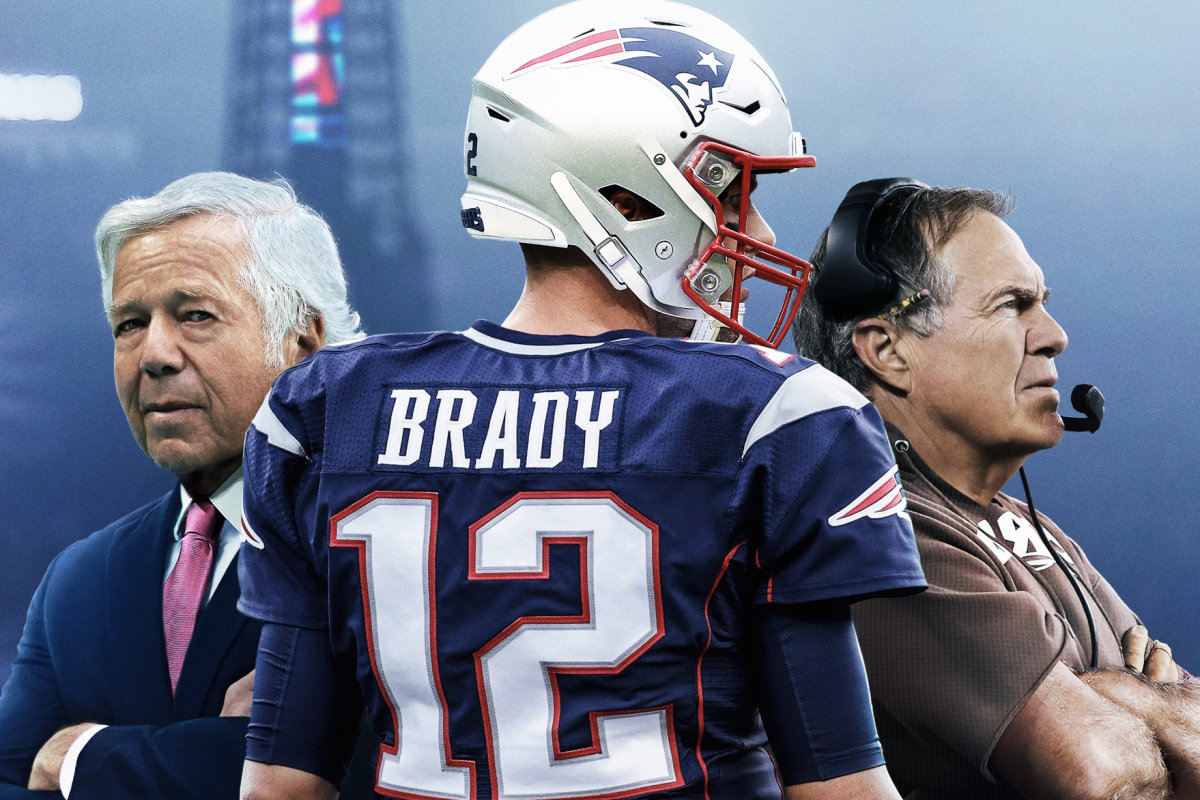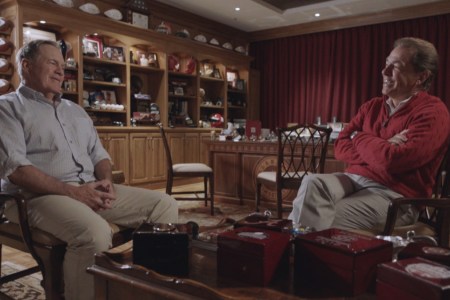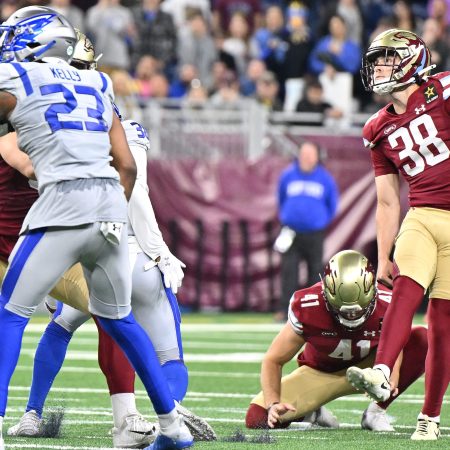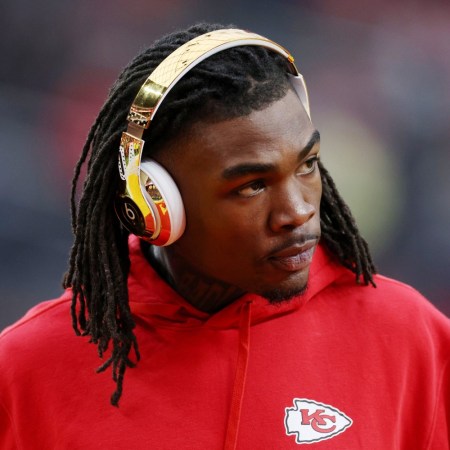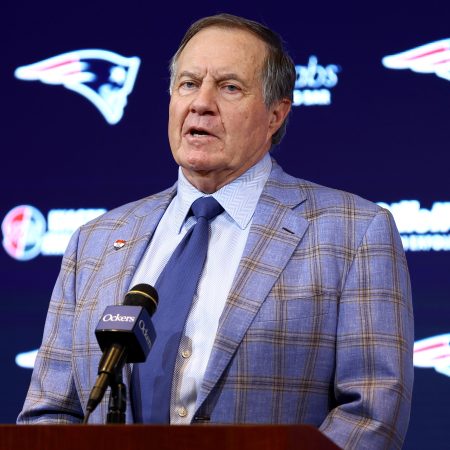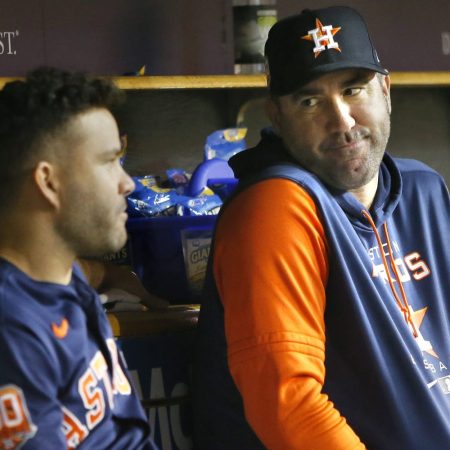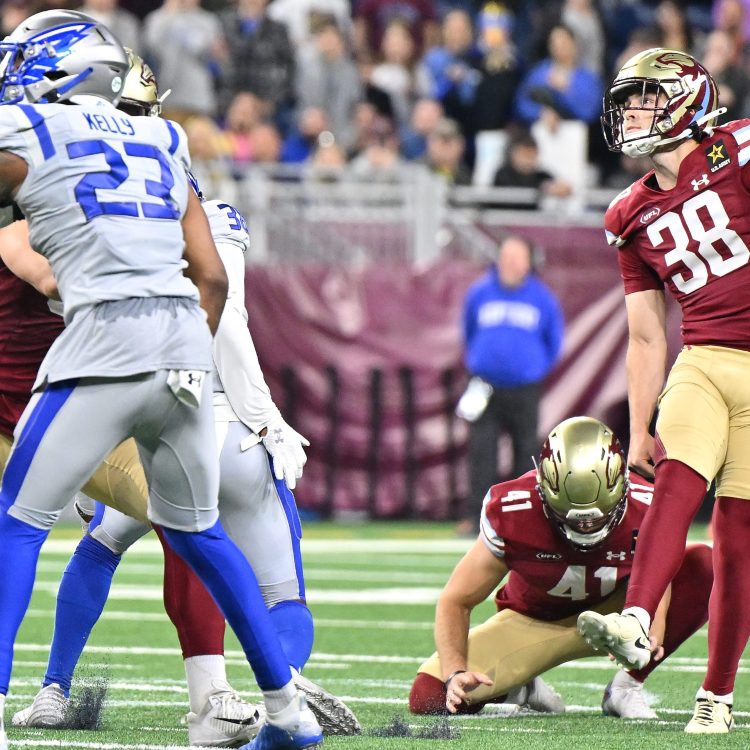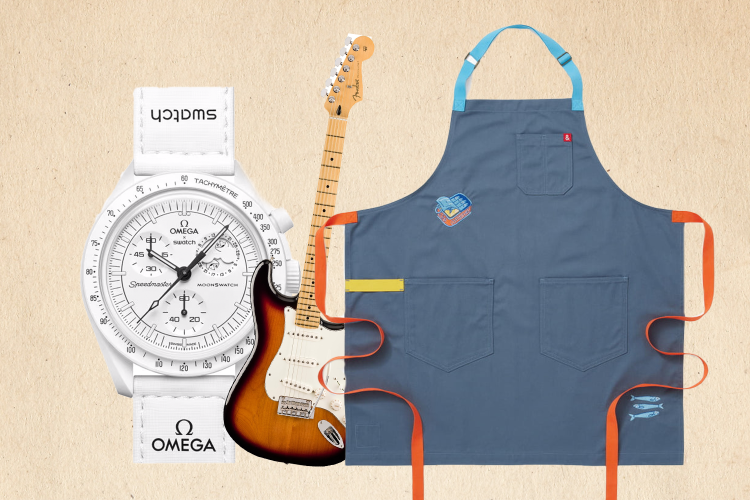During the two-plus decades that it took for the New England Patriots to rise to top of the NFL, and then crash back to the bottom with dizzying speed, things seemed to come in multiples of three for New England: nine Super Bowl appearances, six Super Bowl wins and three scandals that made national headlines. Fittingly, there were three men who were central figures to varying degrees in the Super Bowl wins and losses, as well as Spygate, the Aaron Hernandez debacle and Deflategate: Tom Brady, Bill Belichick and Robert Kraft.
In director Matthew Hamachek’s 10-part docuseries The Dynasty: New England Patriots, which is now available to stream in its entirety on Apple TV+, Brady, Belichick and Kraft have starring roles as they attempt to chronicle how they rose to greatness together before splintering apart just a year after winning Super Bowl LIII against the Rams, the same team the Patriots defeated to win their first championship in Super Bowl XXXVI.
A Packers fan with no previous connection to the Patriots, Hamachek began work on the project in the midst of the pandemic and spent two and a half years doing research, combing through archival footage and conducting interviews with players, coaches, front office executives, rivals of the Patriots and other people who were tangentially connected to the team during their decades of domination.
“I didn’t know much about the team and didn’t come in with any preconceived notions because of my memories of watching them,” Hamachek tells InsideHook. “I really was just about listening and trying to ask questions that I thought might get closer to answering a question. What does it take to get there? I wanted to examine that question and this team and everything they went through. This is a very complex and nuanced story. There are ups and downs and jubilant celebrations and cautionary tales. But it ultimately is a quest to find out what it takes to get to that level of greatness. No team has gotten there more than the Patriots.”
With Brady retired, Belichick fired and the team in the midst of a massive rebuild that may take years to complete, the Patriots likely won’t be getting back to the top of the mountain anytime soon, but fans (or haters) who want to remember the good (or bad) old days can watch it all unfold inThe Dynasty. With all 10 episodes now available, we asked Hamachek about the process of making the series and the feedback he’s received.
InsideHook: For a project like this, how do you decide on the length and what events to cover or leave out?
Matthew Hamachek: Four or five years ago, I never would have wanted to direct a 10-part series because normally the more time you spend on a subject, the further and further you get away from the central question and theme. I directed Tiger for HBO and that was two parts broken up into 1.5-hour sections. That amount of time really forces you to be ruthless about sticking to your theme or your question. You know what you use and what you don’t. The arc in The Dynasty is the journey you go on with the characters in the story. As we started to put this thing together, what we focused on or what we didn’t was determined by what would get us to answering that question. It’s sometimes the points at which they face the most adversity that get you closest to the question: “What does it take to get [to the top]?” It’s all a constant examination of that question.
How Bill Belichick and Nick Saban's Friendship Helped Them Rule Modern Football
A look back at an HBO documentary that explores their four-decade allianceYou conducted a lot of the on-screen interviews. Was there anyone who really surprised you?
There was a lot of that. Part of it was I just didn’t know the people or the story all that well. I was constantly meeting new people and hearing about new things. A great example of that was Tom Brady. The Tom Brady I knew was in commercials and ate avocado ice cream and was the GOAT. He’s such a global celebrity, I didn’t expect him to be as candid, revealing, emotional and vulnerable as he ended up being. I assumed he would show up with a PR person who would sit behind me and tap me on the shoulder when I got to Deflategate and say, “We’re not gonna talk about that now.” I also thought he’d have a hair-and-makeup person. To his credit, he just came in and sat down in the chair and said, “What do you guys wanna know?” That was it. I think that shows in his interview in the way he answers questions.
Do you think Brady and other players were more forthcoming because they are no longer Patriots?
That wasn’t something I really discussed with them, but these guys all seemed to have really thought about all of this and were really good at taking us back there. Their ability to paint a picture of the mood and the tone and what people were going through was just fascinating. It was an interesting group of people to have because of the design of the culture that worked so well. We didn’t get to meet them much or spend a lot of time getting to know them when they were on the team. It’s interesting how charismatic, intelligent and thoughtful they are. For a group of guys who didn’t talk that much, they really are all great storytellers.
There are lots of stories in the Aaron Hernandez episode, but Brady doesn’t appear. Why is that?
I had three hours with Tom. Whenever I start an interview, I have pages and pages of questions. In Tom’s case, he could have literally talked about every second of this thing, so I had to figure out what the parts I really needed him to weigh in were. Towards that point in the arc of the story, I needed to make sure I asked him about Deflategate, which really involved him more than the Aaron Hernandez story. It was a time-management choice. Simple as that.
For that same episode, you’ve been getting some blowback about the portrayal of Bill Belichick and what some people feel is a negative slant toward him. Do you feel the criticism is justified?
There have been all sorts of different reactions to it, but the thing that I was trying to get at is what Boston Globe journalist Bob Hohler refers to over and over in that episode as the idea of “Football Inc.” Football Inc. means overlooking things in order to get talent. That’s part of a larger story too, and the Patriots were a conduit to have that discussion, in this case with the Aaron Hernandez story. What was remarkable to me about the story was how much the people we interviewed still care. They loved Aaron and they still do. It’s also a thing they’re still grappling with emotionally to this day. More than in any other episode, we felt a need to step back and let the people who were there tell their side of the story. That was our approach with the episode.
I guess the timing of The Dynasty coming out right after Belichick left New England didn’t help.
I think some people believe I had a crystal ball and knew what would happen in early 2024 and that therefore the two things are somehow connected. That couldn’t be further from the truth. I had no idea what was going to happen with Belichick. Being a Green Bay fan, I would feel personally wounded when someone would leave the team and then say something negative about Aaron Rodgers’s leadership qualities or something like that. It’s sort of silly when you think about it objectively, but I understand part of being a fan is feeling a connection to these people that goes beyond sports. I get it, but in this case I just don’t have a dog in this fight. I don’t really care one way or the other. I was always just trying to get to the heart of the question.
Do you wish you spoke with Belichick for the documentary after he parted ways with the team?
It’s hypothetical, but it’s certainly something I think about. There are times with Bill when he gives us a one word answer, but there are also times where we see a different side of Bill. It’s a great question, but unfortunately there’s not a sure-fire answer. Coach Belichick is complicated. He’s a three-dimensional person. Tedy Bruschi talks about him and he says, “I’m the wet towel and Bill is the hands that are wringing the talent out of me.” It’s difficult, but that’s his job. There’s this great line from Tom Landry I wrote down recently. I think it’s part of the answer to the question we were always trying to figure out. It says, “The job of a football coach is to make men do what they don’t want to do in order to achieve what they’ve always wanted to be.” That’s how I think of Belichick.
Whether you’re looking to get into shape, or just get out of a funk, The Charge has got you covered. Sign up for our new wellness newsletter today.
